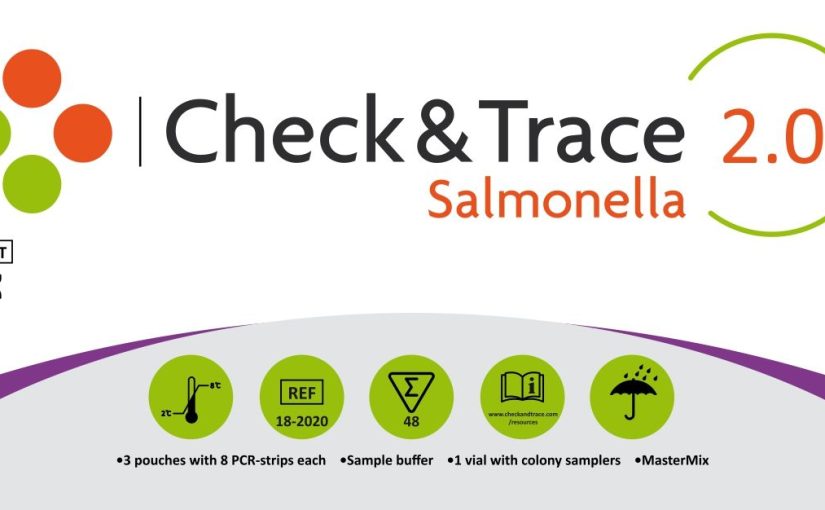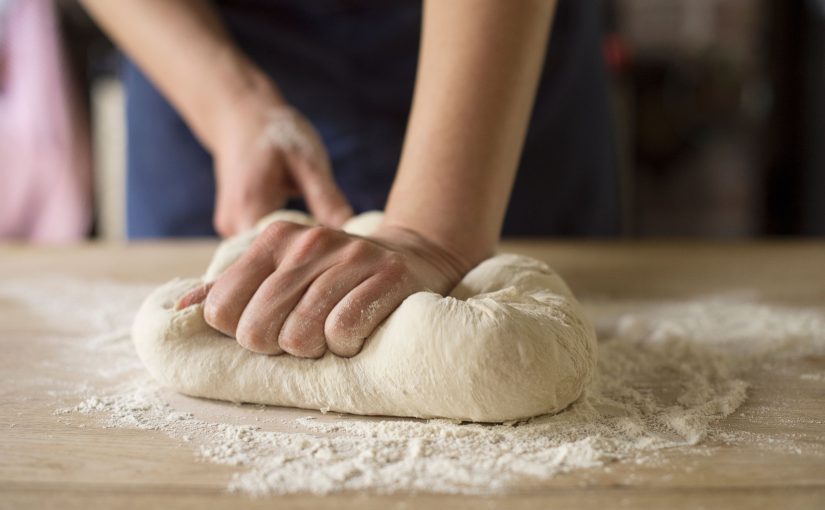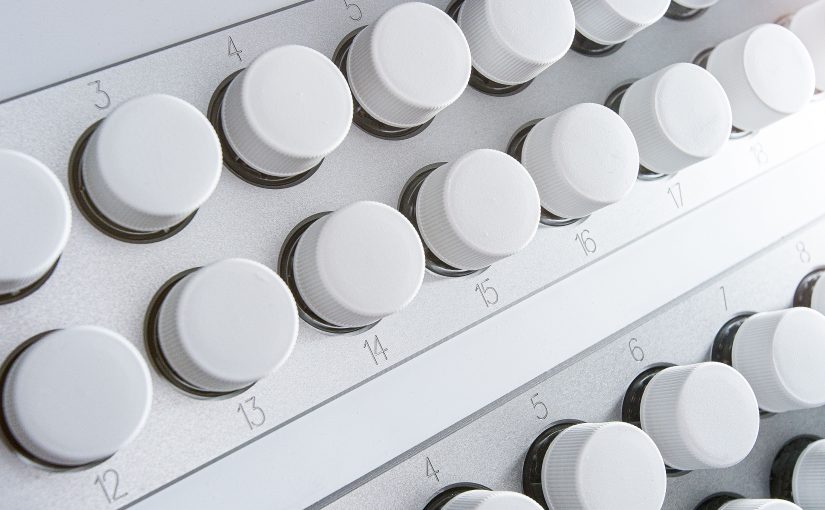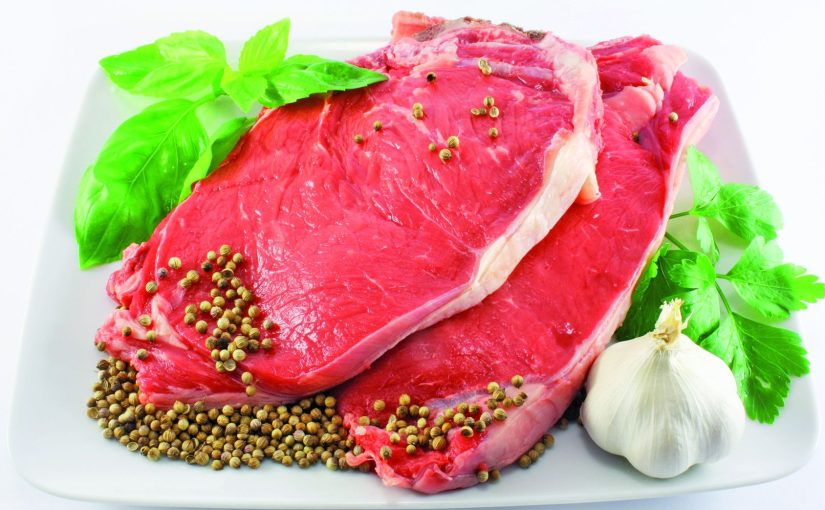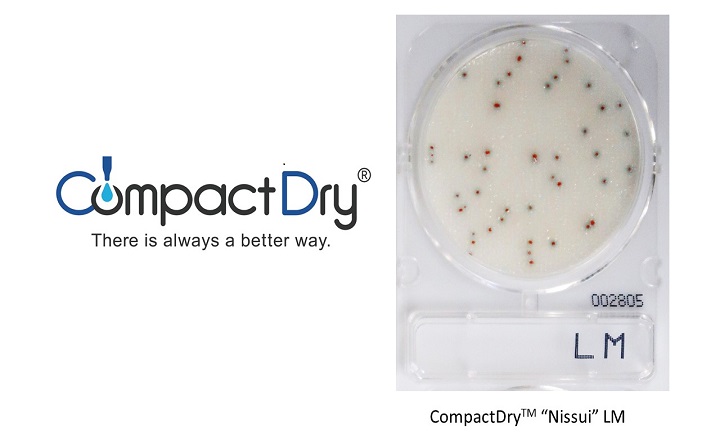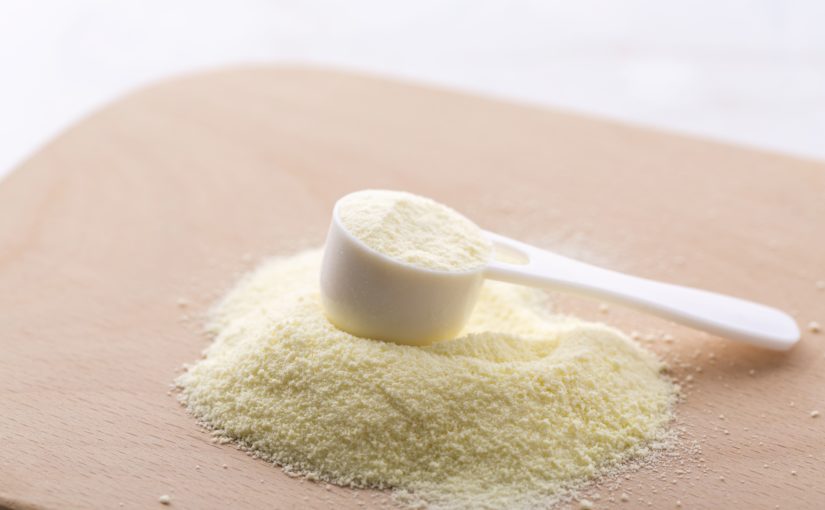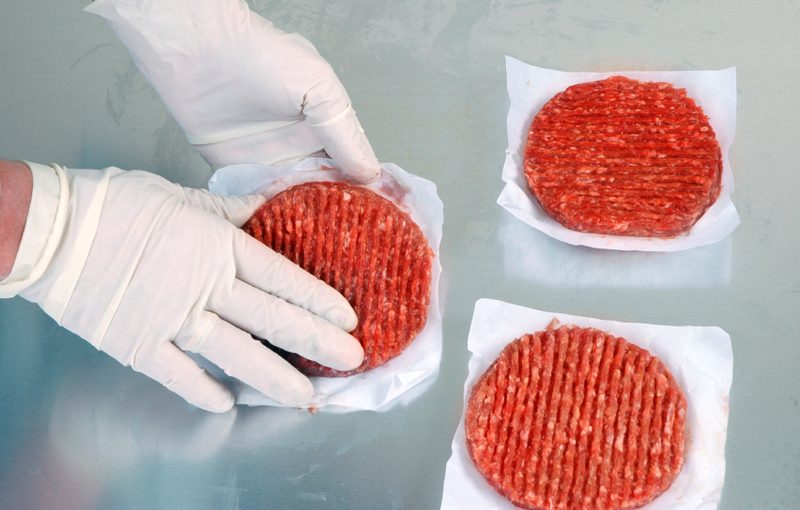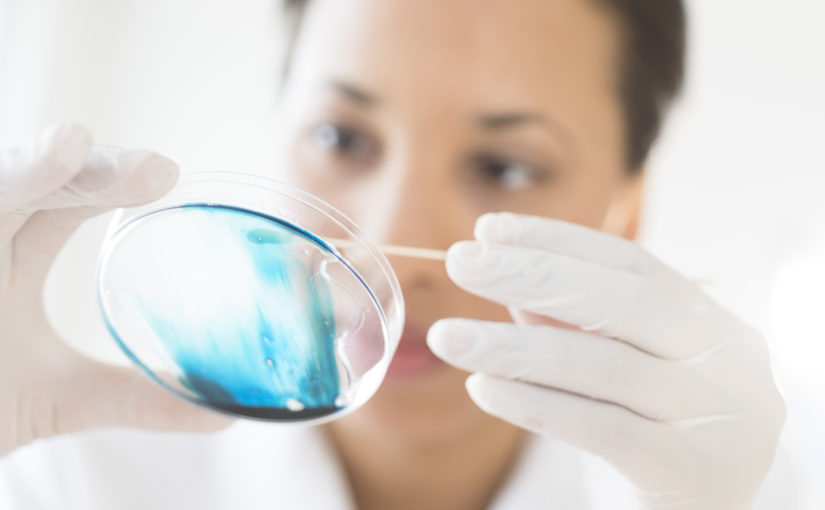MicroVal has approved the issuing of the certificate for Check-Points’s Check&Trace Salmonella 2.0. WFC Analytics carried out the validation study, based on ISO 16140-6, for an alternative method for the confirmation and typing of Salmonella spp. Following from the validation study, the Check&Trace Salmonella 2.0 (CTS 2.0) is considered equivalent to the reference method (ISO 6579-1 and ISO 6579-3) for the confirmation of presumptive Salmonella spp. isolated on non-selective NA and selective XLD and for typing of 59 Salmonella serovars.
The Check&Trace Salmonella 2.0 Assay is a qualitative, semi-automated real-time PCR test designed for the confirmation and typing of presumptive Salmonella isolates from enriched culture media. The confirmation procedure advances a suspected (presumptive) Salmonella result to a confirmed Salmonella spp. result or a Salmonella negative result. The typing procedure generates a serovar result or a “genovar” code both uniquely defining each bacterial isolate tested.
DNA typing differs from serotyping. With serotyping the presence of antigens on the cell surface and flagella are detected. This is based on expression of genes located on two specific segments of the Salmonella genome. The CTS 2.0 assay detects genetic variation at 21 loci scattered over the whole Salmonella genome: this generates specific Salmonella genotypes, also called Genovars. The CTS 2.0 database links Genovars to a collection of well-characterized Salmonella Serovars. A Genovar will be given as test result if there is no established Serovar for the Genovar generated by the CTS 2.0 assay.
Check&Trace Salmonella 2.0 is considered equivalent to the ISO standard (ISO/TR 6579-3:2014) for typing of 59 Salmonella serovars. The full list of Salmonella serovars is given in the certificate and validation report, available on the MicroVal website under ‘issued certificates / confirmation methods’.
